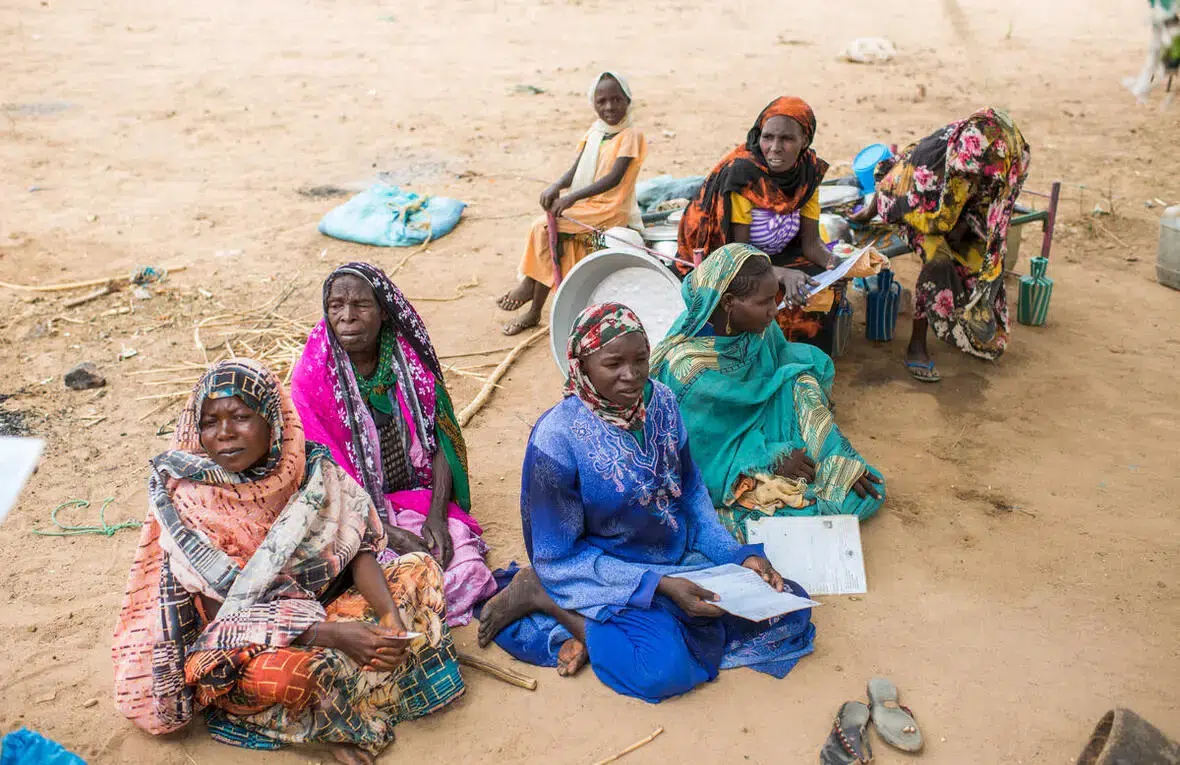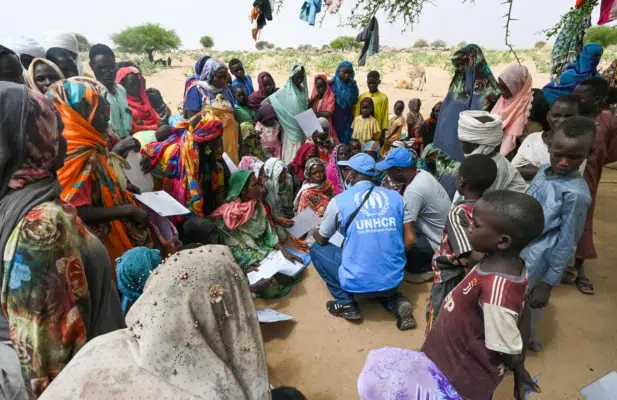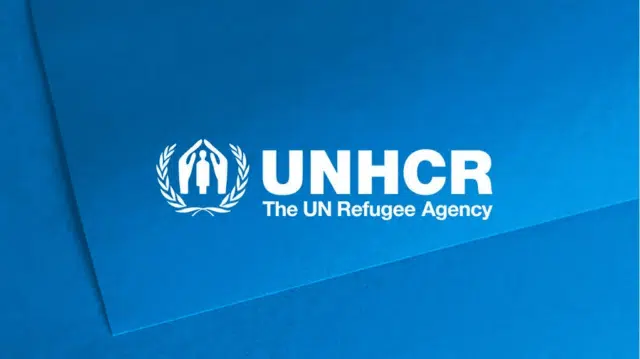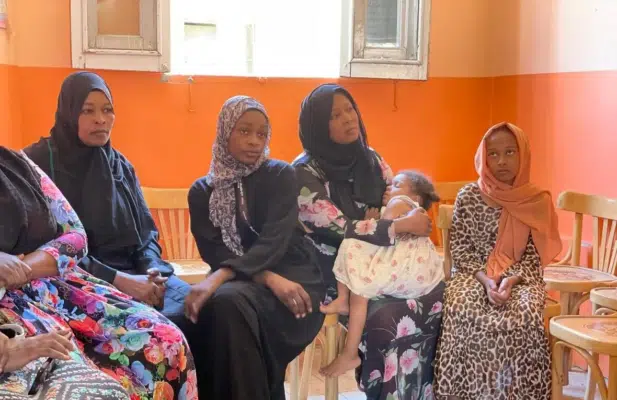
Women wait to be pre-registered by UNHCR staff at the Koufroun site in the Ouaddaï region of Chad. They all fled the town of Tindelti, a few hundred metres across the border in Sudan. © UNHCR/Colin Delfosse
This is a summary of what was said by Elizabeth Tan, UNHCR’s Director of International Protection – to whom quoted text may be attributed – at today’s press briefing at the Palais des Nations in Geneva.
Concerned by the ongoing hostilities in Sudan, UNHCR, the UN Refugee Agency, has issued a new position on returns to the country. It advises that people fleeing the conflict in Sudan, as well as Sudanese nationals who are outside the country and cannot return because of the conflict, may be in need of international refugee protection under international and regional legal frameworks.
With the eruption of conflict on 15 April, UNHCR urges all countries to allow civilians fleeing Sudan, non-discriminatory access to their territories. This applies to Sudanese nationals, foreign nationals, including refugees who were being hosted by Sudan, stateless people, and those who are not in possession of passports or other identity documents.
Since the start of the hostilities, UNHCR and humanitarian protection partners have been reporting a shocking array of humanitarian issues and human rights violations, including indiscriminate attacks causing civilian casualties and injuries, sexual violence, as well as widespread criminality and looting of civilian infrastructure including markets, hospitals, humanitarian premises and assets, and private property.
Large numbers of civilians have been forced to flee the fighting, including people who were already internally displaced because of previous conflicts in Sudan, and refugees from other countries who had sought safety in Sudan. In addition to new internal displacement, well over 100,000 people, both Sudanese refugees and returnees, have also fled Sudan to neighbouring countries – notably Chad, South Sudan, the Central African Republic, Egypt and Ethiopia.
We are grateful to all the neighbouring countries who have allowed them to seek safety.
UNHCR urges that all claims of Sudanese nationals and people, including those who are stateless, who were habitual residents of Sudan, applying for international protection, be processed fairly and efficiently.
Given the current volatility in Sudan, UNHCR also calls on States to suspend the issuance of negative decisions on asylum claims lodged by Sudanese nationals or stateless people who were habitually resident there. Sudanese nationals whose claims for international protection were rejected prior to the current conflict may now be in need of international protection based on the changed circumstances in Sudan.
UNHCR is also calling on States to suspend forced returns to Sudan, including of people who have previously had their asylum claims rejected. The bar on forcible return serves as a minimum standard and should remain in place until the situation in Sudan has significantly improved to permit a safe and dignified return of those not in need of international protection.
UNHCR also is very concerned by the plight of some 1.1 million refugees and asylum-seekers of other nationalities who have been hosted in Sudan. Some are already choosing or being compelled to leave Sudan and must be allowed to do so.
South Sudanese nationals are the largest group of refugees in Sudan, which also hosts significant refugee populations from Eritrea, Ethiopia, Syria, and Yemen, among others. Any refugee travelling onwards to third countries for safety should be referred to national asylum procedures for consideration of their applications.
There may also be foreign nationals, as well as stateless people and those with undetermined nationality, who were in need of international protection and who enjoyed other forms of legal stay in Sudan. UNHCR recommends that they also be referred to the national asylum procedures where they are seeking international protection.
The humanitarian situation in Sudan continues to deteriorate as a result of the conflict and continues to force many to seek safety in other countries. Yesterday, UNHCR and 134 partners announced funding requirements of $445 million for the regional interagency refugee response plan in five countries, with planning figures of 860,000 Sudanese, refugees of other nationalities and refugee returnees leaving the country.
For more information, please contact:
- In Geneva, Mathew Saltmarsh, saltmars@unhcr.org +41 799 679 936
- In Geneva, Olga Sarrado, sarrado@unhcr.org, +41 797 402 307
- In Geneva, Eujin Byun, byun@unhcr.org, +41 79 747 87 19
- In Nairobi (regional), Faith Kasina, kasina@unhcr.org, +254 113 427 094
- In Dakar (regional), Alpha Seydi Ba, baalp@unhcr.org, +221 773 457 454
- In Amman (regional), Rula Amin, aminr@unhcr.org +962 79 004 5849
- In Ottawa, Levon Sevunts, sevunts@unhcr.org, +1 613-286-6975





